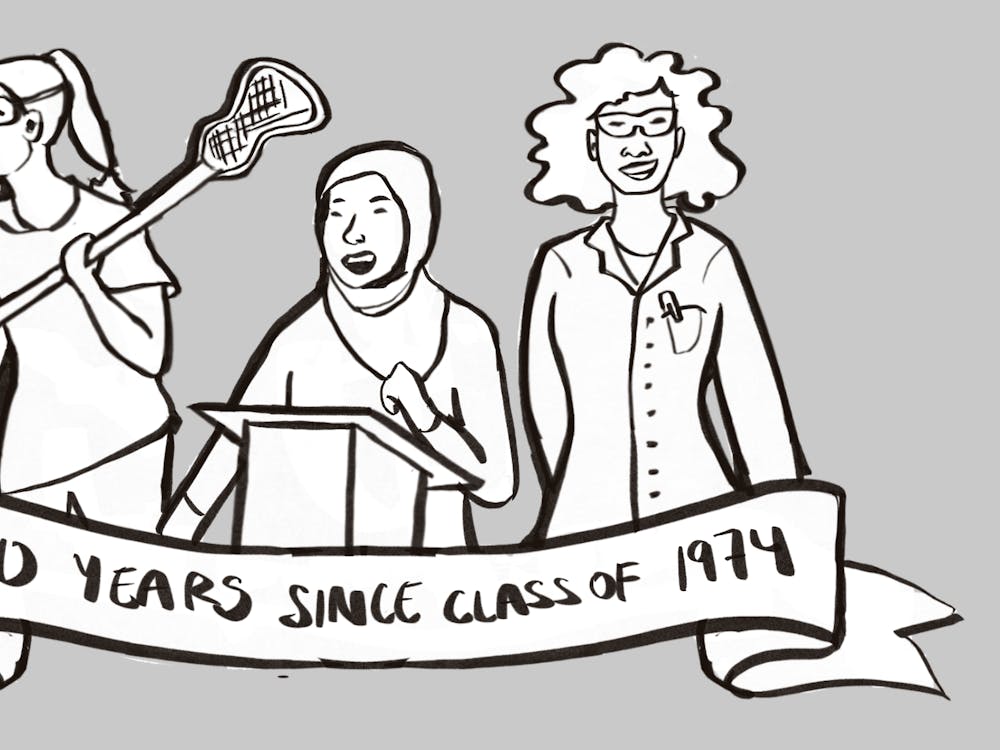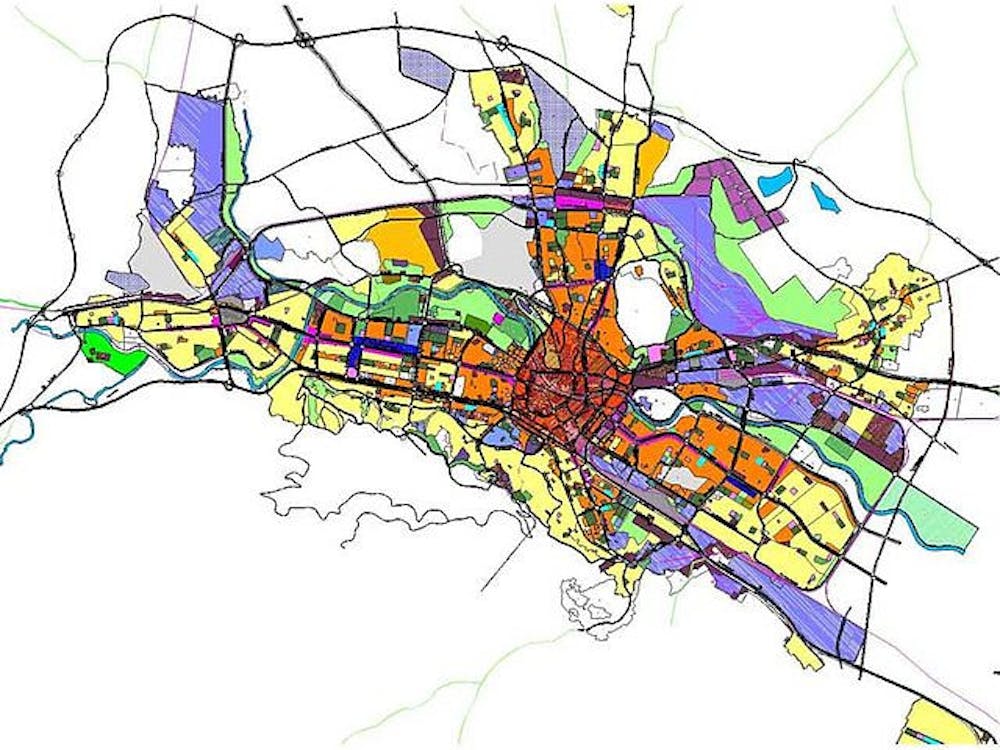It is a couple of weeks into my first semester at Hopkins when, out of the blue, somebody says to me, “Your eyes are so small.”
Before I even have the chance to react, the topic changes and we’re talking about something else. Just like that, the moment passes. The conversation moves on. They move on. And I am supposed to move on too.
But it just doesn’t work like that. It can’t work like that.
It was stated to me like a fact, as if commenting on my eyes is the same as commenting on the color of my shirt or the brand of my shoes. There was no malicious intent, just a casual observation.
Both of my parents are first generation immigrants from China. I am of full Chinese ethnicity. My eyes are probably smaller than the average Caucasian, I thought. I told myself that I was not allowed to be sad over something that was not meant to hurt me in the first place.
But somehow, that innocuous comment about my eyes being small stuck with me.
I was a sophomore in high school the first time I seriously considered getting eyelid surgery to make my eyes look bigger. Rates of this surgery were and continue to be on the rise. My mom even told me she would pay for it if I really wanted to go through with it. I decided then that the summer before college would be the perfect time to go through with it. I could go through the bloating and healing process at home, and maybe nobody would ever find out. I could enter college with brand new, bigger eyes and start anew.
There was nobody specifically in my life at the time who was pushing me to believe that I needed to have bigger eyes, but I desired it intensely. When I was 15, I used to take a toothpick and trace over the crease of my eyelid everyday for a few months, thinking that it would deepen the fold and make my eyes appear larger.
Nobody explicitly ever said to me that I needed to have bigger eyes in order to be more attractive or more desired, but nobody ever needs to explicitly say that for Asian Americans and Asians all over the world to feel the pressure to have more Caucasian features. We absorb that pressure every single day through our casual interactions.
Growing up as an Asian American, I never saw anybody in the media that looked like me. Even the very few Asian newscasters did not look like me. Many of them had been pressured in the early years of their career to get the eyelid surgery in order to have more screen time.
Newscaster Julie Chen disclosed a few years ago that she was told by a former employer, “Because of your heritage, because of your Asian eyes, I’ve noticed that when you’re on camera — when you’re interviewing someone — you look disinterested and bored because your eyes are so heavy. They are so small.”
To be honest, I did not end up going through with the surgery simply because I had forgotten about the idea of it, not because I had come to some moment of empowerment and acquirement of self worth.
When somebody says to me, “Your eyes are so small,” it throws me back in time and I feel like a sophomore in high school again.
Even if it is not meant to be racist or harmful, these kinds of racial microaggressions passed off as nonchalant, harmless comments stick with people. The generations of oppression that Asian Americans have faced do not become forgotten just because time has passed. Even if it was not intended to be insulting, the pain that the decades of Asian Americans who were explicitly berated for having small eyes remains.
These microaggressions occur everyday without people noticing. These small, seemingly inoffensive comments perpetuate the marginalization of Asians in a way that is difficult to refute.
What does one even say to a friend who was just arbitrarily commenting on the size of one’s eyes? It may not be open bigotry, but it is a subtle form of marginalization nonetheless, which is almost more dangerous because people can so easily brush it under the table.
But what you say to other people always matters, especially when you could be potentially perpetuating the racial marginalization that has existed - for centuries.
Kaylee Zou is a freshman Writing Seminars and computer science double major from Boyds, Md.






















Please note All comments are eligible for publication in The News-Letter.